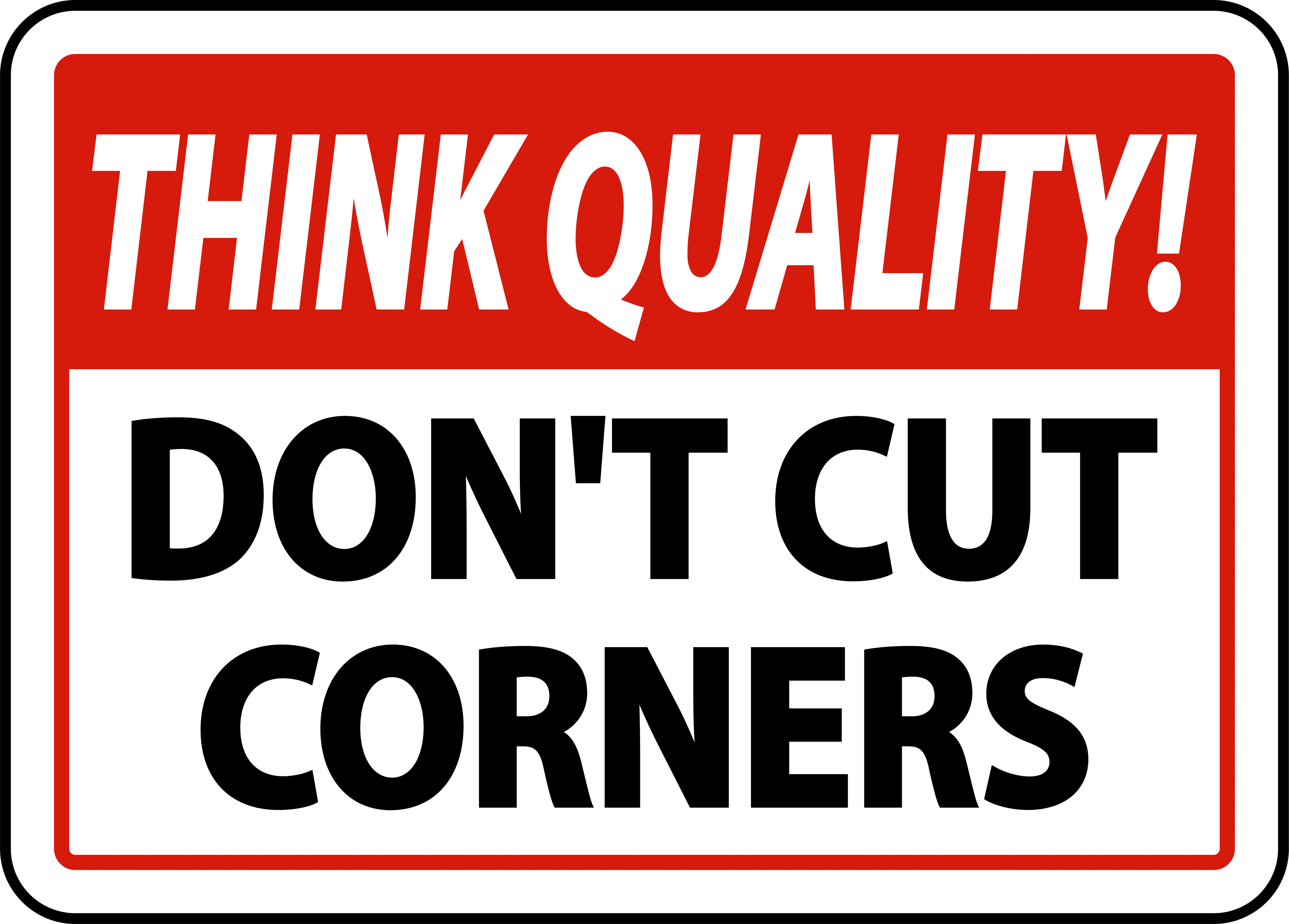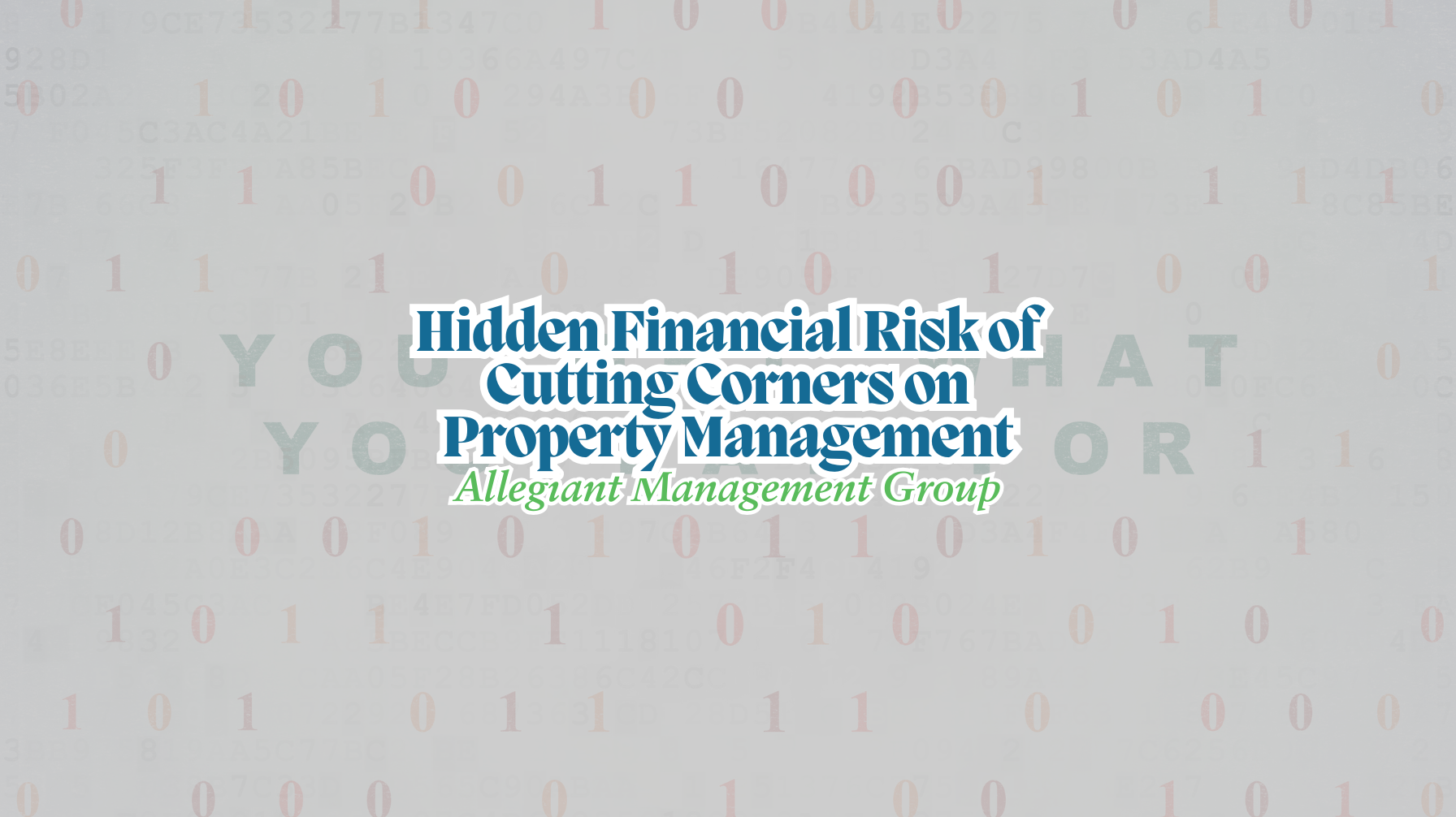Cutting Corners on Property Management: The Hidden Financial Risks
Maximizing your return on investment (ROI) is critical for rental property owners. One common way owners try to cut costs is by reducing or entirely eliminating property management fees—often by choosing cheaper services or managing the property themselves.
However, this attempt to save money often comes with a hefty price tag in the long run. The risks associated with cutting corners in property management can ultimately cost far more than the initial savings. “The saying, ‘You get what you pay for,’ holds true.”
This blog will examine the hidden financial risks of choosing low-cost property management services and explain why investing in professional, quality management is the key to protecting your property and maximizing long-term profits.

The True Role of a Professional Property Manager
Professional property management extends beyond simply collecting rent and responding to tenant complaints.
A well-rounded property manager performs numerous crucial tasks essential to preserving and enhancing the value of your investment.
These tasks include:
- Thorough tenant screening: Ensuring reliable tenants by conducting detailed background checks, credit checks, and rental history evaluations.
- Legal compliance: Navigating the intricate web of local, state, and federal landlord-tenant laws to protect you from costly legal issues.
- Proactive property maintenance: Identifying and addressing issues early, preventing minor problems from turning into costly repairs.
- Financial management: Offering accurate bookkeeping, tax compliance, and transparent financial reporting.
- Effective marketing: Filling vacancies quickly with qualified tenants, minimizing income loss and turnover.
Without these core services, rental property owners are exposed to significant financial risks. Let’s explore these risks in more detail.

The Hidden Costs of Cheap Property Management
1. Inadequate Tenant Screening
Tenant screening is one of the most critical aspects of property management, yet it’s often one of the areas where cheap management companies cut corners.
Rushed or incomplete screening processes increase the likelihood of renting to tenants with poor payment history, unstable employment, or prior evictions.
This can result in:
- Late or missed rent payments disrupt your cash flow.
- Costly evictions, which can take months and cost thousands in legal fees.
legal fees - Property damage can lead to expensive repairs and lower your property’s overall value.
Professional property managers use a rigorous screening process to find reliable tenants likely to stay long-term, reducing turnover and associated costs.
2. Non-Compliance with Legal Requirements
Local and federal regulations governing rental properties are complex and constantly changing. A cheap or inexperienced property manager may be unaware of the latest laws and regulations, potentially exposing you to:
- Fair Housing Act violations: Missteps handling tenant applications, denials, or accommodations can lead to expensive lawsuits.
- Eviction law violations: Improper eviction procedures can result in legal penalties or dismissal of eviction cases, delaying the process and costing you more in lost rent.
- Lease agreement issues: Improperly drafted or incomplete leases may lack the legal protections to safeguard your interests, leaving you vulnerable to disputes.
By contrast, professional property managers stay current on relevant laws, ensuring compliance and preventing costly legal issues.

3. Deferred Maintenance and Subpar Repairs
When property maintenance is delayed or handled poorly, it can lead to more significant problems. Cheap management companies may cut corners by hiring unlicensed contractors, using substandard materials, or delaying necessary repairs to save money. This approach can result in:
- Significant structural damage: Neglecting minor repairs, like a leaky roof, can lead to expensive problems such as water damage, mold growth, or pest infestations. Thankfully we have that covered.
- Tenant dissatisfaction: Delayed repairs or poorly executed maintenance frustrates tenants, leading to higher turnover and vacancies.
- Declining property value: Over time, inadequate maintenance erodes the property’s condition, lowering its market value and making it harder to sell or rent at market rates.
Quality property management includes routine inspections, preventative maintenance, and the use of licensed contractors who can perform lasting repairs.
4. Increased Vacancy Rates and Turnover
Prolonged vacancies and high tenant turnover are the biggest threats to your rental property’s profitability. Inexperienced or low-cost property managers often lack the resources or expertise to market properties effectively, leading to extended vacancies.
They may also fail to address tenant concerns promptly, resulting in increased turnover. With increased vacancy, the chances for unauthorized occupants greatly increase. The consequences of this include:
- Lost rental income due to prolonged vacancies.
- Additional costs for marketing, screening, and preparing the unit for new tenants.
- A negative reputation, as dissatisfied tenants leave poor reviews, makes it harder to attract quality renters.
Professional property managers have the experience and resources to market properties efficiently, minimize vacancies, and foster positive tenant relationships to reduce turnover.
5. Financial Mismanagement
Accurate financial reporting is crucial for tracking the performance of your rental property. Cheap property management companies may not provide the level of financial transparency required to manage your investment effectively. Poor financial oversight can lead to:
- Mismanagement of funds, leading to unpaid bills or mishandled taxes.
- Lack of clarity on where your money is spent makes tracking your property’s profitability harder.
- Without proper bookkeeping, you may be unaware of discrepancies, unpaid taxes, or missed opportunities to maximize deductions, leading to costly penalties or lost savings.
Professional property managers provide detailed financial reports, ensuring transparency and helping you make informed decisions about your investment. They also handle taxes and other financial aspects to avoid costly mistakes.
Don't Wait Until It Is To Late - Let Allegiant Management Group Help Protect Your Profit and Your Property

Frequently Asked Questions (FAQs): Saving Money on Management Fees: The Hidden Financial Risks
Why do professional property managers charge higher fees?
Professional property managers charge higher fees due to their expertise, legal compliance, tenant screening, maintenance coordination, and rent collection services. Their experience reduces vacancies, minimizes legal risks, and ensures property upkeep, leading to higher long-term profitability for owners. The fees reflect the value of professional oversight and efficiency.
What are the hidden costs of choosing a cheaper property management service?
Cheaper property management services may lead to hidden costs like poor tenant screening, higher vacancy rates, legal compliance issues, subpar maintenance, and unexpected fees. Low-cost managers often lack resources for quality service, resulting in costly repairs, eviction expenses, and lost rental income over time.
How does poor tenant screening affect my rental property?
Poor tenant screening leads to late payments, property damage, higher eviction rates, and legal issues. Bad tenants increase maintenance costs, disrupt neighbors, and cause longer vacancies. A thorough screening process reduces financial risks and ensures reliable, long-term renters.
How can professional property management increase my rental income?
Professional property management increases rental income by reducing vacancies, optimizing rental pricing, ensuring on-time rent collection, and maintaining the property efficiently. Strong tenant screening minimizes turnover and costly repairs. Strategic marketing attracts quality tenants, maximizing occupancy and long-term profitability.
What are the legal risks of self-managing or using a cheap property manager?
Self-managing or hiring a cheap property manager increases legal risks like fair housing violations, improper lease agreements, mishandled security deposits, and wrongful evictions. Inadequate knowledge of landlord-tenant laws can lead to lawsuits, fines, and tenant disputes, costing landlords significantly in legal fees and lost income.
Disclaimer: This blog is for information purposes only and does not constitute legal or financial advice. Always consult with a qualified property management professional or legal advisor regarding your specific situation.
Blog Updated: 02/26/2025



